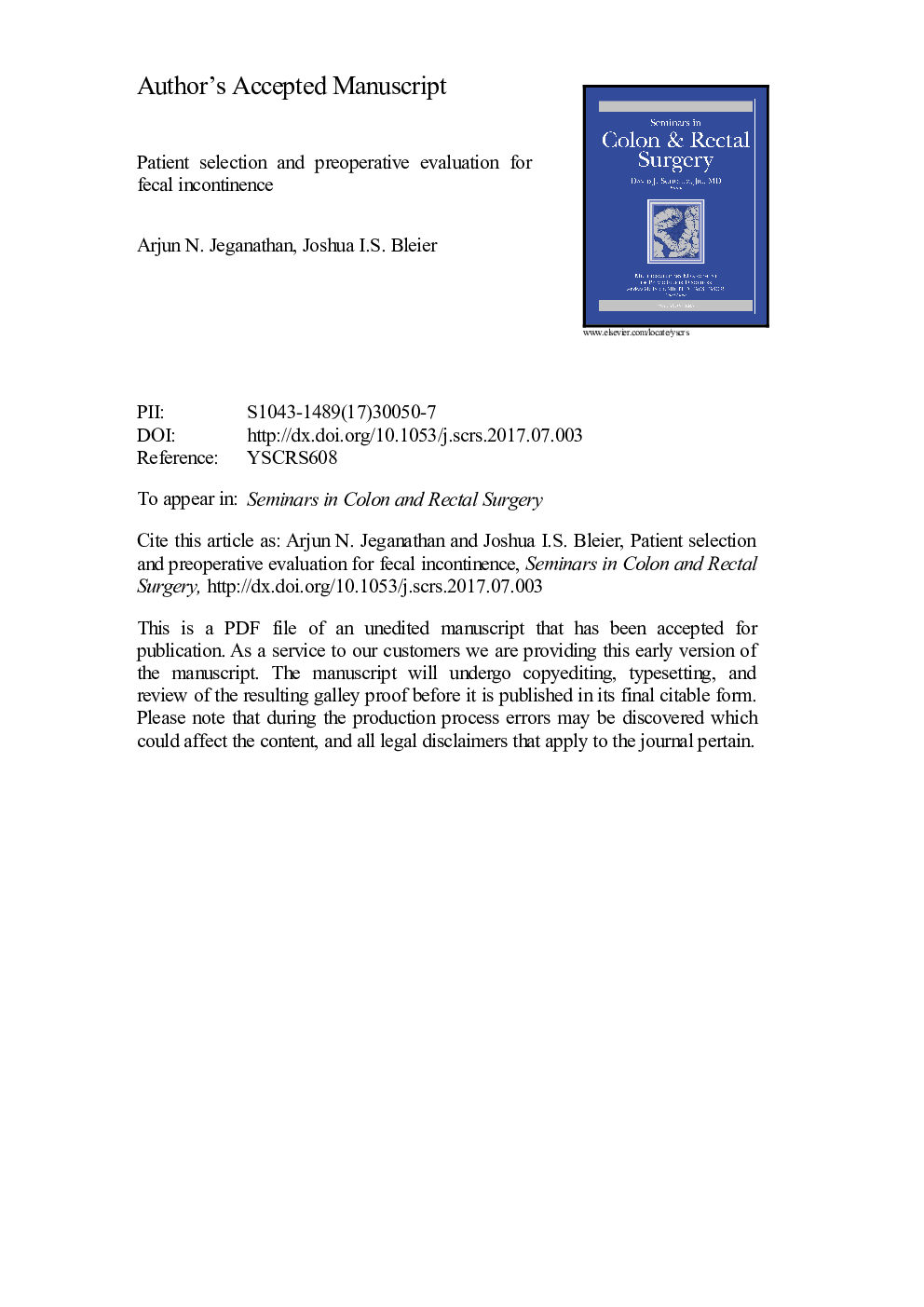| Article ID | Journal | Published Year | Pages | File Type |
|---|---|---|---|---|
| 8731282 | Seminars in Colon and Rectal Surgery | 2017 | 14 Pages |
Abstract
Patient selection and preoperative evaluation play a vital role in the application of sacral neuromodulation (SNM) to fecal incontinence (FI). The history and physical should elucidate the nature of the incontinence, including duration, severity, type of leakage, as well as associated pathology (e.g., urinary incontinence, prolapse, etc.). Additionally, the use of a validated incontinence scoring system in obtaining an objective measure is recommended as a way to monitor an individual patient's response to treatment over time. Despite dramatic success with SNM for severe incontinence, medical therapies should remain first-line treatment, especially for mild to moderate FI. In addition to idiopathic causes of FI, small series have reported successes in patients with disrupted anal sphincters, spinal cord injury, rectal prolapse, and low anterior resection syndrome. In general, studies on sacral neuromodulation have failed to identify consistent predictors correlating with response to treatment. Two considerations unique to SNM, cardiac pacemakers and anomalous anatomy, are not absolute contraindications but do mandate thorough preoperative planning and counseling.
Related Topics
Health Sciences
Medicine and Dentistry
Gastroenterology
Authors
Arjun N. MD, Joshua I.S. MD,
